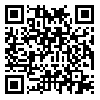Volume 2, Issue 3 (8-2012)
JRSM 2012, 2(3): 35-54 |
Back to browse issues page
Download citation:
BibTeX | RIS | EndNote | Medlars | ProCite | Reference Manager | RefWorks
Send citation to:



BibTeX | RIS | EndNote | Medlars | ProCite | Reference Manager | RefWorks
Send citation to:
Namazizadeh M, Shahabi Kaseb M R, Vaeze Musavi S M K. The Effect of Various Practical Conditions (the Interaction of Organization and Distribution of Practice), Individual Characteristics and Task Difficulty Level on Determination of the amount of Practice (Repetition, Passage of Time) for Acquisition of Fine Motor Skills. JRSM 2012; 2 (3) :35-54
URL: http://jrsm.khu.ac.ir/article-1-1617-en.html
URL: http://jrsm.khu.ac.ir/article-1-1617-en.html
1- Azad Islamic University, khurasgon Branch
2- Hakim Sabzevari University
3- University of Imam Hussein
2- Hakim Sabzevari University
3- University of Imam Hussein
Abstract: (11022 Views)
The purpose of this study was the comparison of the required time and repetition for the acquisition of simple and complex timed motor sequenced task (TMST) among various practical conditions and determination of suitable practical methods with respect to individual characteristics. One hundred and fourteen university students, with the age range of 19-25 years old, were divided in 4 groups according to Raven Intelligence test, Achievement Motivation Test, Reaction time and Purdue pegboard, and based on the first, second and third quadrants. Then they were randomly placed in one of the two groups of simple and complex TMST and also in one of the practical conditions of the interaction of the organization of practice (random, blocked, constant), and practical distribution (massed, distributed). The subjects trained 6 days under their specific practical condition of simple or complex TMST, in a way they reached to the acquisition criterion (accuracy %75, timing %25, stability %15) in a practical training block. The number of repetitions and passage of time before this criterion block were considered as the minimum required time and repetition for acquisition of TMST. The data were analyzed using two-factor analysis of variance, independent t-test and Xi - 2 test (=&alpha0.1). The results showed individuals with different characteristics have acquired simple TMST in blocked and massed condition (except group ) in average within 30 repetitions and 1347 minutes, and complex TMST in random and distributed condition (except group ) in 25 repetitions and 1228 minutes. In addition, the findings showed that the principles of practical programming is affected by both the complexity level of task and individual characteristics. At last, it seems there is a need of more studies on the combination effect of the environment, individual and task on the acquisition fine motor skills.
Keywords: Fine motor skill, amount of practice, acquisition, organization of practice, distribution of practice, individual features
Type of Study: Research |
Accepted: 2022/03/31 | Published: 2012/09/15
Accepted: 2022/03/31 | Published: 2012/09/15
| Rights and permissions | |
 | This work is licensed under a Creative Commons Attribution-NonCommercial 4.0 International License. |





